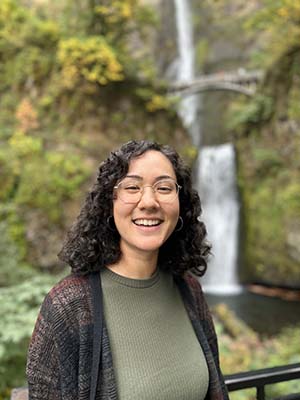Hunter Geography Alumni Focus
An Interview with Jisun Reiner, BA, Environmental Studies & Sociology, 2022
|
Jisun Reiner graduated with a B.A. in Environmental Studies and Sociology in 2022 and currently works for the Nantuket Conservation Foundation.
Why did you study Geography and/or Environmental Science?
I came into Hunter with an interest in environmental and marine science, but I wasn't entirely committed to this track until I started taking earth science classes in the Hunter Geography department. I also conversed with multiple professors about their career paths and the broad range of opportunities an environmental science degree could provide. Once I began to study Sociology in my sophomore year, my passion for the intersection between science and people grew, and I knew I wanted to learn about nature and society in tandem. I continued to study environmental science and engaged in field work around NYC, which opened my eyes to the wonders of hands-on research about the natural world. The classes and field work at Hunter were so fulfilling and exciting that I knew I wanted to pursue this study as a career.
How has Hunter Geography/Environmental Science helped shape who you are today?
What was being a student in NYC like?
Hunter Geography/Environmental Science provided me with a unique perspective into urban environmental issues that stressed the importance of people as a part of the natural world. Conversations about the NYC environment focused on the large presence humans have had in shaping the landscape and emphasized abundant nature in a place often thought to be devoid of nature. In my work today, I often think about the need for paradigm shifts that were discussed in classes at Hunter. I am grateful to have had an education focused on environmental earth science in an urban landscape, especially as more people move to cities. The professors at Hunter were incredibly helpful in guiding my path and suggested many places to seek internships. There are many wonderful environmental organizations in NYC, and being a student in the city meant that there were plenty of opportunities to work in these organizations.
What is your current research?
I am currently the Coastal Ecology Research Technician at the Nantucket Conservation Foundation on Nantucket Island, Massachusetts. In my role, I spend most of my time collecting data in salt marshes, monitoring dune/beach erosion, taking water quality samples, and making sure our oyster reef is healthy and thriving. I also piloted a project counting glass eels around the island with community members this past winter, which was inspired by the Hudson River Eel Project (fun fact, this project was the reason I became interested in environmental science in high school!). Collecting and analyzing data in salt marshes is truly one of my favorite research activities — falling into holes and getting muddy in the salt marsh is thrilling, to say the least. All of the data my team and I collect on the salt marshes' vegetation, groundcover, elevation, hydrology, and bearing capacity is used to rank the health of marshes across the island and to understand regional differences that may be affecting these variables. Working on a remote island like Nantucket is certainly different from working in NYC, but there are many lessons I am learning from being immersed in a tight-knit community in the middle of the ocean!
What motivates your work?
I am constantly motivated by my desire to make science engaging and fun for people. I want communities to experience the same fascination with the natural world that I felt when I went into the field for the first time as a high schooler. I believe that hands-on interaction with nature has a powerful impact on people and how they perceive their belonging in the world. My love for salt marshes is rooted in knowing how vital these ecosystems are to the wellbeing of the planet and coastal communities in the face of climate change. Hunter had a huge impact in shaping this motivation and my overall goal to make science more inclusive, accessible, and diverse.
Published: July 16, 2024

